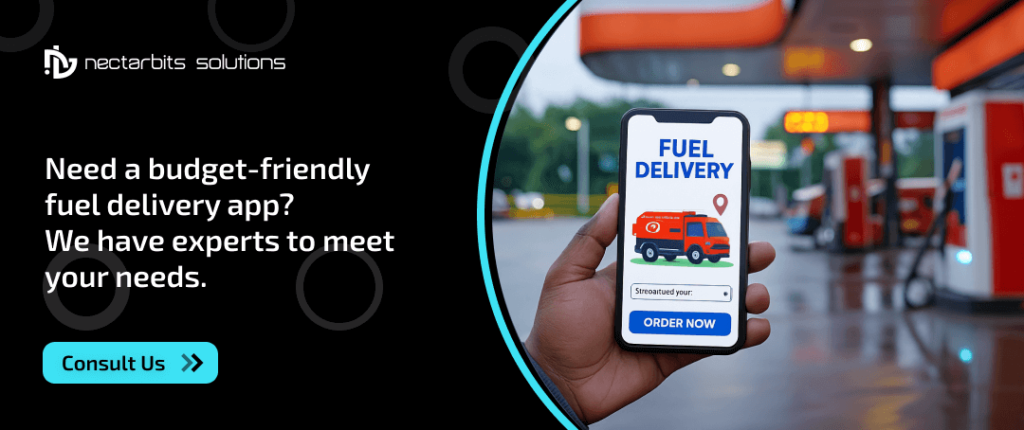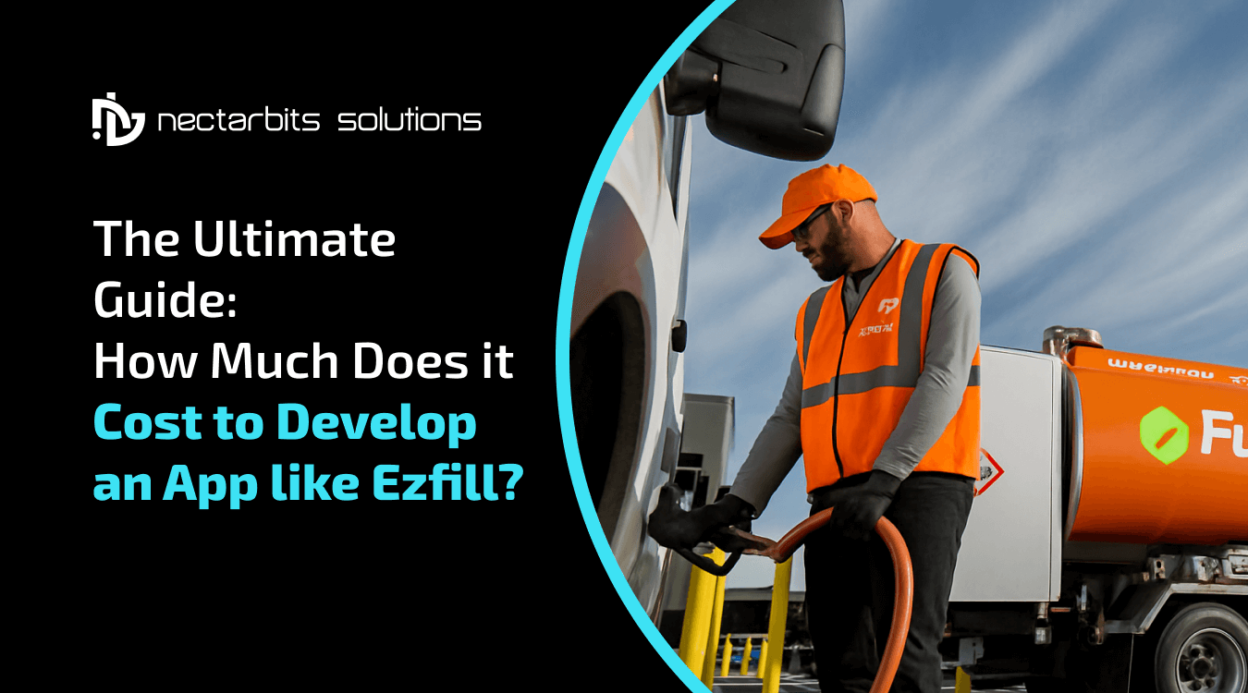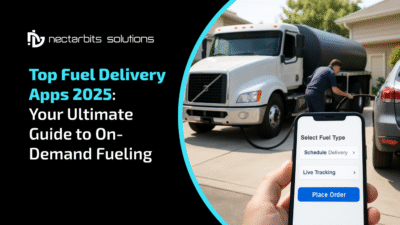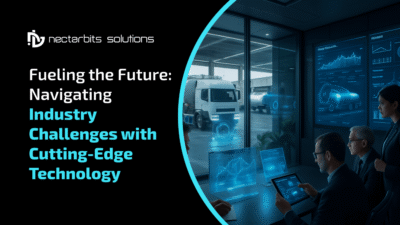The fuel delivery apps are successful if they meet the needs of target customers and businesses. Ezfill is one of the mobile fuel delivery apps that meet growing customers’ demands for convenience in long winters and the busy urban lifestyle of Canadian cities like- Toronto, Vancouver, and Calgary. The app operates on direct-to-consumer fuel delivery, and an on-demand and scheduled refuelling model has generated significant revenue since its launch.
The financial performance of Ezfill states that it generated $27.8 million in revenue in 2024, with 7.2 million gallons delivered, which is 24% up from the previous year. Its strategic expansion with the acquisition of 73 trucks from Shell Oil and entry into new markets- Phoenix, San Antonio, Houston, and Austin projects that 26 million gallons of fuel will be delivered in 2025, generating over $100 million in revenue.
The impressive growth and future outlook of Ezfill, shifting market trends towards convenient delivery, and potential use cases make new entrepreneurs and start-ups build an app like Ezfill. However, the shiny revenue growth and market expansion of Ezfill clone app development require an upfront investment, which cannot be overseen. It doesn’t make sense to enter into the mobile refuelling market without budget planning as there are a lot of expenses to incur from infrastructure setup to mobile app development and marketing activities.
This blog will walk you through the Ezfill app development cost so that businesses get a detailed cost breakdown enlisting which factors affect the fuel delivery app cost. Let’s explore!
How much does it cost to build an app like-ezfill?
Building the full-fledged ezfill-like solution is a time-expensive, resource-intensive, and costly endeavour that requires thoughtful planning. Here are the factors impacting ezfill-like Fuel delivery app development cost.
The range of functionalities
Start-ups look for different types and sizes of ezfill-like app development services in Canada based on their budget and timeline. Based on their project size, from MVP development to mid-tiered and enterprise-size app development, the number of functionalities to include varies.
For example, MVP development that requires basic functionalities costs between $30,000 and $50,000 and enterprise-sized app development that requires advanced functionalities costs between $50,000 and $120,000. Also, separate interfaces are built for user-facing apps, driver apps, and admins with different sets of functionalities. Here’s the cost breakdown based on the functionalities.
| Functionality | Details | Estimated Cost (CAD) | ||
| 1. User Registration & Login | Email, phone, social logins, OTP verification | $4,000 – $6,000 | ||
| 2. User Profile | Manage personal info, vehicles, fuel types, locations | $3,000 – $4,000 | ||
| 3. GPS Location & Mapping | Real-time map view, fuel delivery location, geofencing | $8,000 – $12,000 | ||
| 4. Fuel Selection & Pricing | Choose fuel type, dynamic pricing integration | $4,000 – $6,000 | ||
| 5. Scheduling Delivery | Date/time selection, immediate or future delivery | $5,000 – $7,000 | ||
| 6. Secure Payment Gateway | Integration with Stripe, Moneris, or PayPal (Canadian providers) | $6,000 – $8,000 | ||
| 7. Order Management | View, track, cancel, repeat orders | $5,000 – $7,000 | ||
| 8. Push Notifications | Order status, alerts, promo offers | $4,000 – $5,000 | ||
| 9. Driver App | Accept delivery, route navigation, and fuel volume logs | $12,000 – $16,000 | ||
| 10. Admin Panel | Dashboard, delivery tracking, pricing control, analytics | $15,000 – $20,000 | ||
| 11. Fuel Inventory System | Fuel level monitoring, depot linking, compliance logs | $8,000 – $10,000 | ||
| 12. Reporting & Analytics | Revenue, deliveries, driver performance, churn | $6,000 – $8,000 | ||
UI/UX design complexity
Intuitive UI/UX design intrigues the target users, and ezfill-like app UI/UX design is no exception. Seamless fuel delivery booking experience maximizes users’ engagement and retention, which benefits businesses in terms of increased loyalty, sales, and ROI. The complexity of screens, custom illustrations and animations, and several revisions impact the UI/UX design cost. Here’s the cost breakdown of how much businesses need to invest in UI/UX design in Canada for unprecedented experience.
UI/UX design cost breakdown for ezfill-like app development
| UI/UX Design Task | Detail | Cost Range (CAD) | |
| 1. Product Research & Strategy | Competition and market analysis, user persona research, and journey mapping | $800 – $2,400 | |
| 2. Wireframing | Initial layout for user app, driver app, and admin | $1,600 – $3,600 | |
| 3. UI Design – Customer App | Visual design of end-user mobile screens, including home, booking, payment, and tracking | $3,200 – $7,200 | |
| 4. UI Design – Driver App | Delivery flow screens, route UI, fuel log entries | $2,400 – $6,000 | |
| 5. UI Design – Admin Panel | Dashboard for analytics, fuel inventory, delivery management | $2,400 – $4,800 | |
| 7. Prototype | Interactive prototype creation with Figma or Adobe XD is used for stakeholder approval | $1,600 – $3,600 | |
| 8. UX Testing & Feedback Loop | A/B testing, usability adjustments, real-user feedback | $1,200 – $3,000 | |
| 9. Developer Handoff | Exporting assets, style guides, annotations, and design tokens to the developers | $800 – $1,800 | |
Infrastructure and ongoing cost
Ezfill-like app development requires businesses to set up the needed infrastructure and upgrade the app according to the changing market trends, technological innovations, and evolving users’ needs. It helps businesses seize a competitive edge in the market and increase ROI, so it cannot be ignored at any cost. Fuel delivery start-ups should prepare the budget for maintenance and infrastructure under on-demand fuel delivery app cost umbrella whose breakdown looks like this.
| Category | Component | Annual Cost (CAD) | |
| Hosting & Servers | AWS, Google Cloud, Azure | $3,600 – $9,600 | |
| Domain & DNS | Domain name + DNS provider | $120 – $360 | |
| SSL Certificate | Security layer | $0 – $200 | |
| Push Notifications | Firebase Cloud Messaging or Twilio | $600 – $2,400 | |
| Map/GPS APIs | Google Maps API | $1,200 – $6,000 | |
| Payment Gateway | Stripe, Moneris, and PayPal | % of revenue | |
| Analytics Tools | Mixpanel, Firebase, GA4 | $0 – $2,400 | |
| Email & SMS Services | SendGrid, Mailgun, Twilio SMS | $600 – $3,600 | |
| DevOps & Monitoring | CI/CD tools (GitHub, Jenkins), error logging (Sentry) | $1,200 – $6,000 | |
| Cloud Storage | AWS S3, Firebase Storage | $600 – $1,800 | |
| Maintenance & Support | Bug fixes, small updates, monitoring | $12,000 – $36,000 | |
| Customer Support | Intercom, Zendesk, Crisp | $600 – $3,000 | |
| Legal & Licensing | Permits like- PESO for fuel handling and regional business licenses | $5,000 – $20,000 | |
Development team size
Ezfill-type app development requirements determine what type of team is needed, be it a small team (1 project manager, 1 Designer, 2 Developers (full-stack), and 1 QA), a medium team (1 project manager, 2 Designers, 3 Developers (specialized), and 2 QA), or large team (1 project manager, two business analyst, 3 Designers, 5 Developers, 2 QA, 1 DevOps).
When the number of specialists with extensive experiences is increased in the development team, their high hourly rates contribute to the increased development cost. Here’s how team members with different responsibilities and hourly rates affect the development cost.
| Team member | Responsibilities | Hourly rates | Total Cost (CAD) | |||||||
| Project Manager | Scope definition, coordination, roadmap delivery | $25-$100 | $40,000 – $84,000 | |||||||
| UI/UX Designer | Wireframes, user flows, mobile & web app designs | $20-$80 | $14,000 – $40,000 | |||||||
| Frontend Developers (Mobile) | iOS & Android app development | $25-$90 | $72,000 – $144,000 | |||||||
| Backend Developer | APIs, database, user auth, fuel order logic | $30-$100 | $40,000 – $180,000 | |||||||
| QA Tester | Manual & automated testing and bug logging | $20-$70 | $18,000 – $40,000 | |||||||
| DevOps Engineer | CI/CD setup, deployment, and cloud optimization | $40-$120 | $16,000 – $40,000 | |||||||
| Business Analyst | Analyze current business needs and recommend the best solution. | $25-$80 | $5,000 – $20,000 | |||||||
Development approach
Budget constraints, time-to-market needs, scalability requirements, and performance benchmarks play a vital role in fuel delivery app development. These requirements help decide which development approach the businesses should choose. Here’s how much it costs to build an app using different development approaches.
Development Approach Cost Comparison for Fuel Delivery App
| Approach | Description | Cost Range |
| Native Development that ensures the best performance and access to full platform features | Separate iOS (Swift) & Android (Kotlin) apps | $120,000-$300,000 |
| Cross-platform is cost-effective and enables faster development | React Native/Flutter | $80,000-$200,000 |
| Progressive Web App guarantees the lowest cost and instant updates | Web-based app with native-like features | $40,000-$120,000 |
| Hybrid is faster than native development | Cordova/Ionic | $60,000-$150,000 |
Development location within Canada
The team expertise, tech stack, regulatory compliance, bilingual support, and third-party integrations influence the development cost in Canada. For example, senior developers in Toronto/Vancouver charge 20–30% more as compared to the developers of smaller cities. Also, fuel handling licenses and safety certifications add up to the cost. Here’s the cost breakdown of the ezfill-like app based on development rates in different Canadian cities.
Total Estimated Cost Ranges by City
| City | Basic MVP (CAD) | Enterprise-Grade (CAD) |
| Toronto | $10,000 – $25,000 | $150,000 – $250,000 |
| Vancouver | $20,000 – $40,000 | $140,000 – $230,000 |
| Montreal | $8,000 – $13,000 | $130,000 – $210,000 |
| Calgary | $7,000 – $12,000 | $120,000 – $190,000 |
| Ottawa | $7,500 – $12,500 | $125,000 – $200,000 |
How can Clarro help businesses get started quickly and with less investment?
The cost to build an app-like ezfill ranges between $15,000 and $120,000, depending on various factors, including development approach, development location, team size, number of functionalities, UI/UX design, and tech stack selection. Custom ezfill-like app development is a time-consuming and expensive affair, which is not feasible for every business, especially one looking to launch a mobile doorstep fuel delivery venture quickly.
That’s where SaaS service providers like Clarro will help them start the mobile refuelling business in less than 15 days without getting entangled in custom development kinda things. Clarro provides the functionalities that fuel delivery business needs based on subscription plans that they can scale up or down based on mobile app development for fuel startups. Easy updates and lower maintenance fees are the perks that leading businesses opting for SaaS services are enjoying. Partner with trustable SaaS service providers like Clarro in Canada and get a quote for launching a mobile refuelling business quickly with a white-label fuel delivery app.
Conclusion
The mobile refuelling market (With fuel delivery app development) is providing an abundance of opportunities to reap the range of benefits it delivers. The ezfill-like app development cost breakdown allows businesses to identify which factors impact the development cost so that they can decide how to build an app within their budget.
For example, the number of functionalities to include, tech stack to choose from, UI/UX design to opt for, team size, and development approach are selected accordingly. Another way is to go ahead with SaaS services that help businesses start offering on-demand app development services at low cost and in reduced time with unlimited scalability, flexibility, and safety ensured. Based on your financial planning, decide and build an app that the users like the most.

FAQ
1) How much does it cost to build an app like-ezfill?
Typically, building an app like-ezfill requires spending between $25,000 and $120,000, depending on various factors, including app complexity, platforms, features, tech stack, and location within Canada.
2) How long does it take to build an app like-ezfill?
Building an Ezfill-like fuel delivery application takes from a few days to a year, based on the development approach used (Native development or SaaS services), functionalities, UI/UX design, and team size. For example, MVP development takes 3 months to develop, while full-fledged solution development extends to a year.
3) Which factors influence ezfill-like app development?
There are multiple factors influencing the ezfill-like app development cost, including platform choice, backend and API development, third-party integrations, security and compliance, maintenance and updates, and scalability needs.
4) Are there any hidden costs for ezfill-like app development?
There are some unexpected expenses that impact the budget by 20%, including third-party API fees, compliance and legal costs, app store fees, cloud hosting fees, security and fraud prevention, and global expansion.
5) How can I reduce ezfill-like app development costs?
You can reduce the Ezfill app development cost using the following strategic tricks which are-
– Start with MVP and include core features only
– Use Flutter/React Native for cross-platform development
– Outsource development to cost-effective Canadian cities
– Reuse already-developed APIs that prevent custom builds




